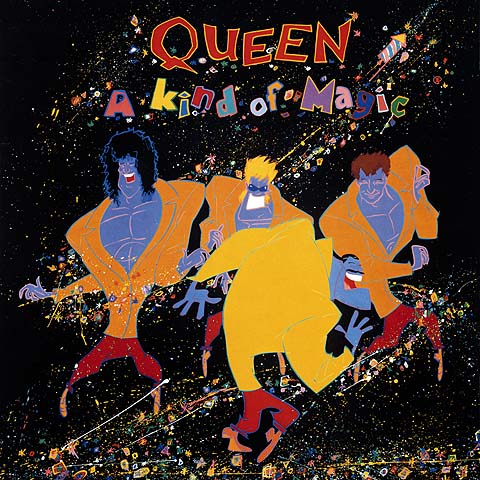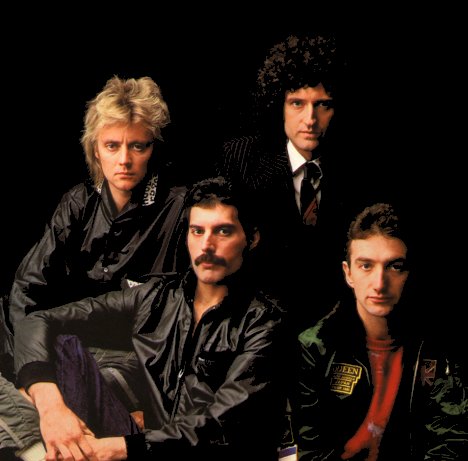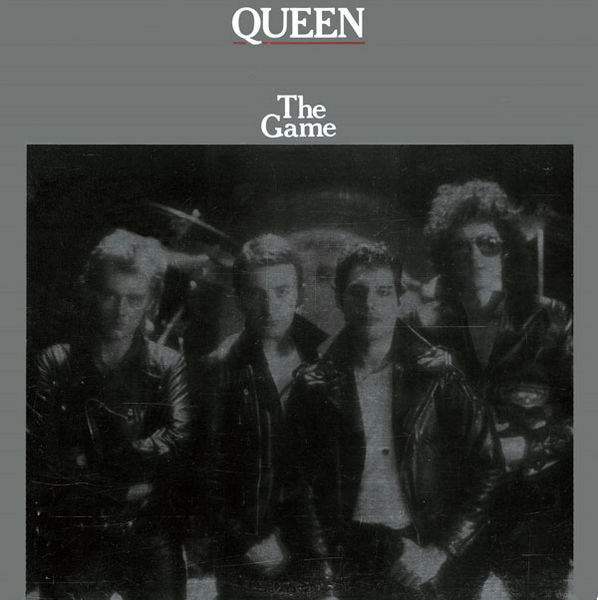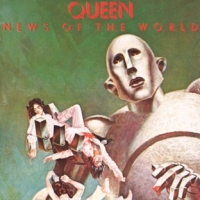08-09-1986 – NME
Inside The Royal Family
by David Quantick
David Quantick travels to Hungary as a representative of notorious bastard rock rag NME, and Queen pick up the tab! Not only that, they consent to an interview.
Hungarian Rhapsody
80,000 HUNGARIANS are screaming and clapping. Amid a storm of lights and noise, Queen are playing ‘We Are The Champions.’
Roger Taylor, a vision in blonde hair and silver drums, accompanies Brian May’s wrenching gloss guitar, and Freddie Mercury…..
Freddie Mercury is running up and down the stage in the People’s Stadium draped in a giant Union Jack. He reverses it and hey presto! It becomes a giant Hungarian flag!
The audience are near to dementia now, and as the song ends, Freddie appears in royal robes. He waves his crown at the audience, Brian and Roger and John Deacon explode in bomb bursts of smoke and Queen’s visit to Budapest is over. I feel stunned.
“Is this the real life/Is this just fantasy?”
At Heathrow Airport the next day, I’m standing on a baggage trolley, trying to regain my hearing. Through the bursting and imploding in my ears, a press officer’s voice comes to me. “Er…David….regarding your talk with Freddie…how would you feel about submitting your quotes to the band’s manager for perusal?” I wonder why they think Queen’s manager wants to see my quotes. Freddie didn’t want to see them.
A Night At The Opera
Queen, as you may have read in your Maxwellious Mirror, recently got invited to play in Hungary. Although Queen are by no means the first band to appear in Eastern Europe, this stadium gig is the largest ever played here. They filmed it, and the movie will be seen throughout Eastern Europe. Queen probably stand to make very little, if anything, on the arrangement, but it’s high in prestige, they wanted to come, and it makes a change from giving money to Save The Children or Greenpeace. Or playing Sun City. To commemorate the event British journalists were flown to Budapest to see the show and attend a British Embassy reception for the band.
So here we are at the embassy. Alienated clumps of stateless Sloanes glance around, wondering if any corduroy-kaftan clad rug-haired men deep in discussion with film directors are members of Queen. The Ambassador and his wife exchange small talk with the journalists; everything is sedate, more like a party in a Peter Barkworth TV series than anything else. And then! Queen arrive! Thousands of photographers appears from corners, Campari glasses forgotten, flashes burst, and the dapper Ambassador and his wife find themselves shaking hands with this thing. It has a large white jacket on, parts of its chest hair are visible, its head is covered in curly hair like a burst sofa, and it is wearing backless clogs. It is Brian May.
Still amazed by the vision, I find myself buttonholed by some rockabillies form Eton who, in the general confusion, have managed to get completely drunk. They want to know if I’m going to interview anyone. I say no, Queen don’t do interviews, and watch Roger Taylor and John Taylor [sic] both in non-functional sportswear – unpretentious yet so elegant – wander about and say things like “How ya doin’ mate?” and other such catchphrases of the rich.
In a corner Freddie Mercury resplendent in an ice blue suit of the Anthony Price genre, is having cigarettes lit for him, and trying to be polite to slewed Etonions. He turns a glittering eye to me and says, “Ah! I’m not supposed to talk to you!” and in this we strike up a conversation, Freddie seems to be an affable man. Short cropped hair and a tidy moustache suit him more than the rockist mops he once sported, and with his slightly curious diction – almost clipped Latin –he could have been a Brazilian diplomat. “I don’t like interviews,” he is explaining to me, “because if you plonk a tape-recorder in front of me, I just clam up, you know.” He sends someone off to get me a drink. A bodyguard appears behind us to ward off those who wish to interrupt Freddie’s conversation. I keep thinking I should ask him about Sun City?
We start talking about other regimes.
“They wouldn’t let us into Russia; they thought we’d corrupt the youth or something.”
Queen must be used to countries where they don’t have our wonderful English-style rule, I suggest, since they play in several South American countries.
“Well there’s a difference,” ponders Freddie, “The problem over there is more that they’re corrupt; life is cheap.”
I remind him of a story. It seems that Queen’s ‘I Want To Break Free’ has been taken up as an anthem by the Brazilian left. When Queen performed the song in Rio, Freddie came on stage dressed in stockings and suspenders. Rumour has it that the enraged Brazilian left canned him off the stage. This seemingly is not the case.
“Well, there was a bit of trouble, a fight between some of the crowd and a cameraman, but……I don’t go on dressed like that to provoke them, you know,” shrugs Mercury. “Still It’s a good story, so what the fuck?”
Roger Taylor appears from behind a bodyguard. In mock horror, he exclaims, “Aaaargh! You do realise that this man is from the NME!” Freddie makes deprecating noises, and Roger leans over to him, semi-confidentially.
“Apparently we’re racists!” he intones. Freddie raises his weary eyes.
“Oh, don’t let’s start on that.” I decide not to ask them about Sun City.
Bodyguards and managers are now preparing to depart. Freddie says, “Look, we’re going to dinner now. Why don’t you?”
I consider the idea for at least two seconds, and accept….
Radio What’s New?
Queen’s three most successful singles are ‘Bohemian Rhapsody’. ‘Another One Bites The Dust’ and ‘Radio Ga Ga’ The first is the ultimate mid-’70s pseudo-conceptual glam single, six meaningless operatic minutes of music with accompanying “pioneering video”. The second is an amazing piece of rockist funk, their biggest worldwide seller, and the one that got them black radio play; and the third is the essence of contemporary Queen. Like ‘Bohemian Rhapsody’, you remember ‘Radio Ga Ga’ for the video; even in Budapest, the audience knew how to do the synchronised hand-claps.
‘Ga Ga’ written by the band’s moderne man Roger Taylor, is a remarkable record. Set to an anthemic electro backdrop, it bemoans the current state of pop radio, the arrival of videos, and hopes for some Golden Age of Radio. What’s odd about it is that the song itself is nothing like any of the teen symphonies and rock ‘n’ roll classics Taylor seems to miss – it fits perfectly into any playlist schedule and would look a touch awry on a rock ‘n’ roll revival show. ‘Radio Ga Ga’ performs a remarkable contortion – It establishes Queen as reliable contortionists, their hearts in the right musical place, and also enables them to make pop records that have as much to do with that dubious ethic as A-Ha.
This is what Queen are about. From the beginning – ‘Seven Seas of Rhye’, ‘Killer Queen’ – they were using the fashions of ’70s rock like Led Zeppelin and Bowie, and giving them more commercial chart gloss. ‘Bohemian Rhapsody’ similarly got bought by a zillion teenies and a vast fog of dopey Genesis fans who liked the portentous nonsense, especially it was long. Later we got funk, electro, a mix of HM and Electronics (‘One Vision’) and most unlikely of all rockabilly (‘Crazy Little Thing Called Love’). More than Bowie, Ferry and Rod Stewart or anyone, Queen are the most durable and flexible pop manipulators in the world. And it does no harm to have Brian May’s white-clogged rock guitar in there to fill the stadia and the festivals.
Only in a set-up like Queen’s, of course could this success emerge. Four disparate personalities, all writing, all squabbling, could only lead to break-up or development. Deacon wrote ‘Another One Rides The Bus’, May wrote (guess what) ‘We Will Rock You’, Taylor wrote ‘Radio Ga Ga’ and Mercury wrote ‘Bohemian Rhapsody’.
Just four lads who shook the world, no? Now let’s take a look through the cab window.
My Dinner with Freddie
“The thing is,” says Freddie Mercury, wedged in the back of a Skoda taxi between Mary, his personal assistant, and me, “I believe in personalities, not papers, I’m not interested in us versus the NME, I’m just here talking to you. People do think that I don’t do interviews, I’ve got a thing about the press. And it’s not true.”
It’s a pity we don’t get together more often. Freddie Mercury makes a better conversationalist than most long-winded or lock-tongued pop stars one meets; I quite like him. He even gives money to Greenpeace. If he weren’t a multi-millionaire who’s played Sun City and done all the garbage of the pseudo fascist videos I’d probably defend him….
The massed Queen taxis arrive at the restaurant, which is allegedly part of Hungary’s only private club. Amid curiosity from the local jet set, we take our seats at a very long table. Freddie considers food. He tells his manager, “Order loads of whatever the best food is. Loads of meat for everyone!” Huge plates of rare steak arrive and surrounded by vegetables, and some plums loaded with curry powder. I am introduced to Brian May, “Orright?”, he inquires, and does not say another word to me all night.
Freddie gives me some wine. He is keen for me to enjoy myself and says that I should “loosen up”. I swap jokes with Roger Taylor. We both know several jokes about A&R men, and Roger tells me a space shuttle joke. “Why didn’t the black guy go up in the shuttle? Because he was tired of going ‘Yes NASA, no, NASA’”. I am impressed. Roger tells Freddie about their slag-off live review in the Guardian. “The bloke wanted a hip-hop band! I ask you!” He turns to me and muses on fashionability. “So…. What’s the NME term for fashionable these days, then?”
A very chic young Hungarian girl is present. She is rather drunk, and this seems to worry one of the security people.
“You better tell her to keep her mouth shut,” warns an interpreter, “or she’ll be out on her ear.”
The girl informs everyone in Hungarian that she is drunk. “I’ve got an Oxbridge degree in classics and I can’t understand her!” muses Roger. Freddie leans over. “Don’t start!” cries Roger “Not again!”
“How big is your cunt, dear?” asks Freddie. There is mild nervous laughter at the table. The girl seems unaware of the gist of Freddie’s enquiry. She looks at him a touch contemptuously and says something probably uncomplimentary. The interpreter finds Freddie very amusing. Anti-Sexism does not have deep roots in the Hungarian psyche. “Can you get it over your head, dear?” says Freddie gesturing. The girl points to her teeth, a potentially rude gesture when talking to Freddie Mercury.
Eventually all this stops, Freddie passes the girl a cigarette. “Just joking,” he says. This is getting to remind me of a David Essex film. Roger Taylor finds himself inexplicably reminded of Venezuela.
“We watch the shows – we watch the stars/on videos for hours and hours”
Smash Hits, that bible of pop irony, refers to the members of rock bands as “ver lads”, as in “ver lads went to ver pub for a drink”. It’s a great phrase because it takes the piss out of the idea of pop stars as ordinary people and also acknowledges that these stars see themselves, and like to be seen as, ordinary people. “Ver lads went for a drink” conjures up the unlikely image of Duran Duran, clad like Mad Max propping up the public bar. Pop stars, of course, like to think of themselves as ordinary Joes, because most of them like to hold onto notions of normality and sanity and the everyday. It’s not just good for the image to talk of chips and girls and Mum, It’s also a barrier against going mad, David Essex-in-Stardust style, when you find your accountants just bought you Egypt.
Queen occupy two worlds. Taylor and Deacon are very much “ver lads”, Oxbridge apart. May form the “Orright?” and the wildly retrograde wooden footwear, seems to be moderately lad like, but Freddie is different, not for him talk of football and the like; Freddie occupies a ground between Gary Glitter and Bryan Ferry. He delights in camp – The Napoleonic costumes, the grand opera gestures, the bullfighters rose clamped between the teeth. His solo videos – wherein “ver lads” tread not – are extravaganzas of tulle, dancing before mirrors, decadent parties and every cliché from Don Juan to Valentino. Of course, with Queen, Freddie’s campness is toned down, just as May’s tediousness is toned up; the band benefit from this hybrid of lads and the Latin lover.
Alas, this division is reflected horridly in the videos of late. Take ‘I Want To Break Free’. We begin with the band dresses as the women in Coronation Street very British May and Deacon as Hilda Ogden types, Taylor as the tarty schoolgirl and Freddie as, natch, Bet Lynch. Hoovers and old newspapers abound; these are the confines of domesticity. The, BOOM!, we explode into a Queen concert and, yes, it’s another bloody Nuremberg rally. Queen as Gods of Valhalla again; it harks back to ‘Radio Ga Ga’s’ video which also mixed Triumph of the Will chic with British domesticity. ‘Radio Ga Ga’ gave us wartime Britain, gasmasks and parlours, bakelite radios and a fireplace – could this be the fireplace that Brian May made his guitar out of? And there’s that rally again.
What’s vile about these two videos in particular isn’t just the pseudo-fascist imagery – they do seem rather proud of audience manipulation – but the versions of the everyday are present. “Ver lads”‘ idea of ordinary is a grotty parlour in some dingy terrace in the 40’s or 50’s. Like Pink Floyd’s live version of The Wall, these videos present a vision of reality where life is grim, claustrophobic, virtually pre-television, and the alternative is……rock ‘n’ roll domination! And the standing on the great monolith while the crowd do the silly handclaps. Weatherfield or Nuremberg; it’s a funny way of looking at things.
Recent videos tend at least to concentrate on the audience domination and rock ‘n’ roll side of things; but one doubts this means that Queen have quite accepted that they are no longer as other men. What’s Roger Taylor’s reality I wonder; telling old jokes over his tea, or reminiscing about Venezuela? And which is Freddie Mercury? Is he the nice chap having the chat with me in the cab, or is he the snide rock star baiting the groupie, or the art collector, or the man with his silly crown? Or, is he, as Smash Hits claim, Lord Lucan?
Play The Game
Freddie Mercury is on stage again in Budapest. The band strike up ‘Friends Will Be Friends’ and the epic strains carry far across the night. And Freddie sings ‘Just a phone call away’ and I think: I am standing in the middle of a football stadium in central Europe and a man is singing the slogan of the current British Telecom ad campaign to 80,000 Hungarians.
So this is real life?




